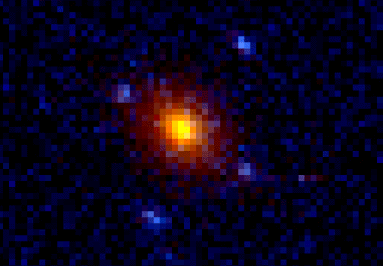Astronomy Picture of the Day
Discover the cosmos! Each day we feature a different image or photograph of our fascinating universe, along with a brief explanation written by a professional astronomer.
December 20, 1995

A Galaxy Gravitational Lens
Credit:
NASA,
HST, K. Ratnatunga. Myungshin Im
(JHU)


